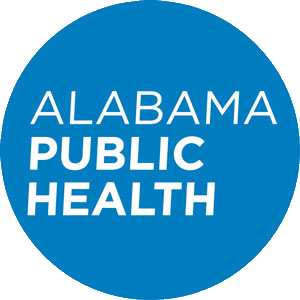Renovation Repair and Painting (RRP) Rule
Requirements for Alabama Childcare Facilities Built Before 1978
What is the RRP Rule?
- EPA’s Lead Renovation, Repair and Painting Rule (RRP Rule) requires that firms performing renovation, repair, and painting projects that disturb lead-based paint in homes, child care facilities and pre-schools built before 1978 have their firm certified by EPA (or an EPA authorized state), use certified renovators who are trained by State and/ or EPA-approved training providers and follow lead-safe work practices.
- UA SafeState manages the State of Alabama’s Lead-Based Paint accreditation program, certifying individuals and training providers. The Alabama Department of Public Health certifies RRP contractors and performs regular inspections.
Before Work Begins…
- Before beginning work, the certified RRP firm performing the renovation is required to distribute the EPA Renovate Right pamphlet and provide information about the project to the following persons: · Owner of the child occupied facility (built before 1978) AND the operator or manager · Parents/guardians of the children attending the child-occupied facility
Reasons to use an RRP-Certified Contractor?
- It’s the Law! The RRP Rule has been strictly enforced since April 22, 2010. Contractors and facility owners and operators violating the RRP Rule are subject to legal actions and penalties
- Prevent Child Lead Poisoning Lead based paint can cause health and environmental hazards when disturbed during renovation. The RRP Rule was written to protect students, residents, renters, visitors and neighbors, especially young and unborn children, from lead poisoning. Lead harms a child’s developing brain and nerve system and can cause: · Reduced IQ & hyperactivity · Learning disabilities · Behavior problems · Slowed growth
- Protect Your and Your Employees’ Health Lead poisoning can cause many health problems in adults, too. Symptoms include: · Raised blood pressure · Increased risk of heart attack or stroke · Decreased brain functions (making it more difficult to think, learn and remember) · Reproductive issues, and more
- Protect Property Value Allowing lead dust or paint chips to collect on your property is an environmental violation and health hazard that can lead to significant ongoing financial consequences, including clean-up costs and reduced property value.
- Maintain Facility Safety Contractors and employees certified for RRP activities are trained to avoid creating lead hazards in your facility. To become certified, the project supervisor must complete an 8-hour training course. The course teaches those employees the proper ways to test for the presence of lead, train others who work for the contractor or owner, set up a work space to prevent the spread of lead dust, clean up safely as the work is completed, check the work area, and more.
How Much Will Using an RRP Firm Cost?
- Careful and responsible contractors already spend time and money to complete a job safely and well; the RRP Rule simply makes sure their work practices are lead-safe. The cost is minor in comparison to the cost and heartache of poisoning a child, employee, or yourself, along with clean-up costs and reduced property value. A contractor who works lead-safe may charge a bit more for the job. The U.S. Environmental Protection Agency (EPA) estimates, and experience shows, that lead-safe work practices add a relatively small amount to the cost of most jobs. The additional cost covers some materials (such as plastic sheeting to prevent lead dust from spreading) and some extra time to set up, work and clean up safely.
Request Proof of RRP Firm Accreditation Certification
- Ensure the hired contractor is trained in lead-safe work practices by asking to see their Alabama-issued RRP Firm Accreditation Certificate To locate a list of Accredited Renovation Firms in Alabama, visit www.alabamapublichealth.gov/lead/ or call (334) 206-5373
Does the RRP Rule Apply at my Child-Occupied Facility?
- The RRP Rule applies to anyone who carries out work in childcare facilities, schools and homes built before 1978 when:
- Disturbing more than 6ft2 of lead-painted or coated surfaces per interior room
- Disturbing more than 20ft2 of lead-painted or coated surfaces on exteriors
- Replacing windows of any size
- Conducting partial demolitions of structures, walls or components
The Alabama Department of Public Health enforces the RRP Rule under authorization from the federal Environmental Protection Agency (EPA).
Contact Information:

